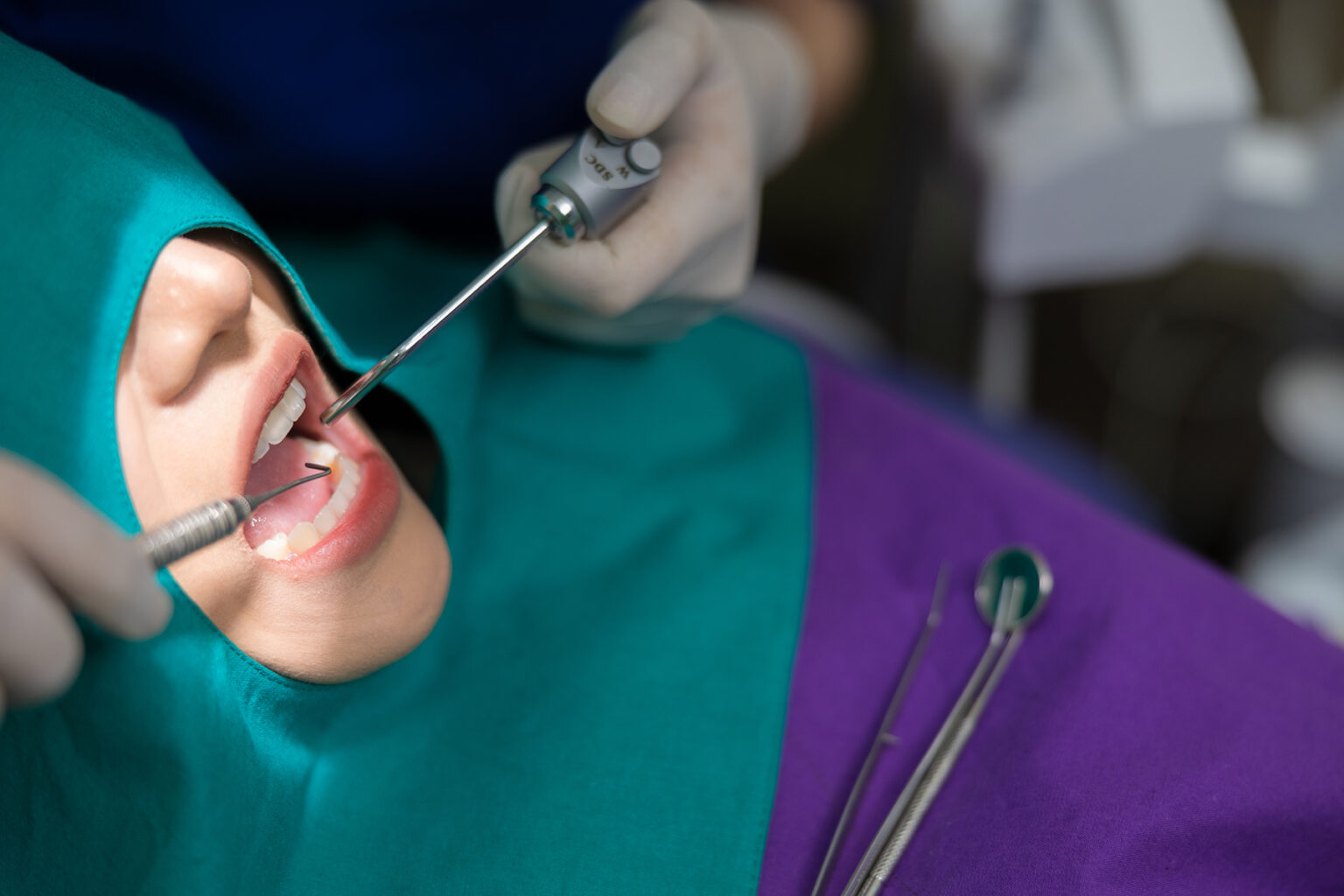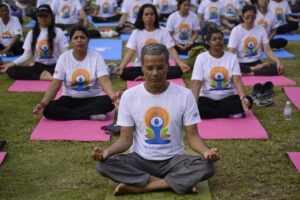Thailand has a thriving dental tourism industry, with Bangkok and other tourist areas catering to foreigners who seek good, inexpensive dental care and treatment.
International residents can access the public healthcare system in the country, which includes primary dental services, if they pay social security contributions. Alternatively, with private health insurance, they can find independent dentists and extensive orthodontic services across the country.
Learn more about dentistry in Thailand, from public care to private cosmetic dentistry clinics, by exploring the following topics:
- An overview of dental care in Thailand
- Thai dental healthcare
- Thai state dental care
- Private dental care in Thailand
- Low-cost dental care in Thailand
- Children’s dental care in Thailand
- Thai emergency dental care
- Private dental insurance in Thailand
- How do you access dental care in Thailand?
- Finding a dentist
- Visiting a dentist in Thailand
- Useful resources
Allianz Care
Allianz Care is a world leader in providing international health insurance. Their various premiums provide professionally designed solutions for a variety of expat lifestyles. So, wherever your life takes you, make sure you have the right health protection for you and your family with Allianz Care.
An overview of dental care in Thailand
Thai citizens are eligible for universal healthcare in Thailand and can receive free dental treatment through government hospitals. This system is called the Universal Healthcare Coverage (UHC) or Universal Coverage Scheme (UCS).
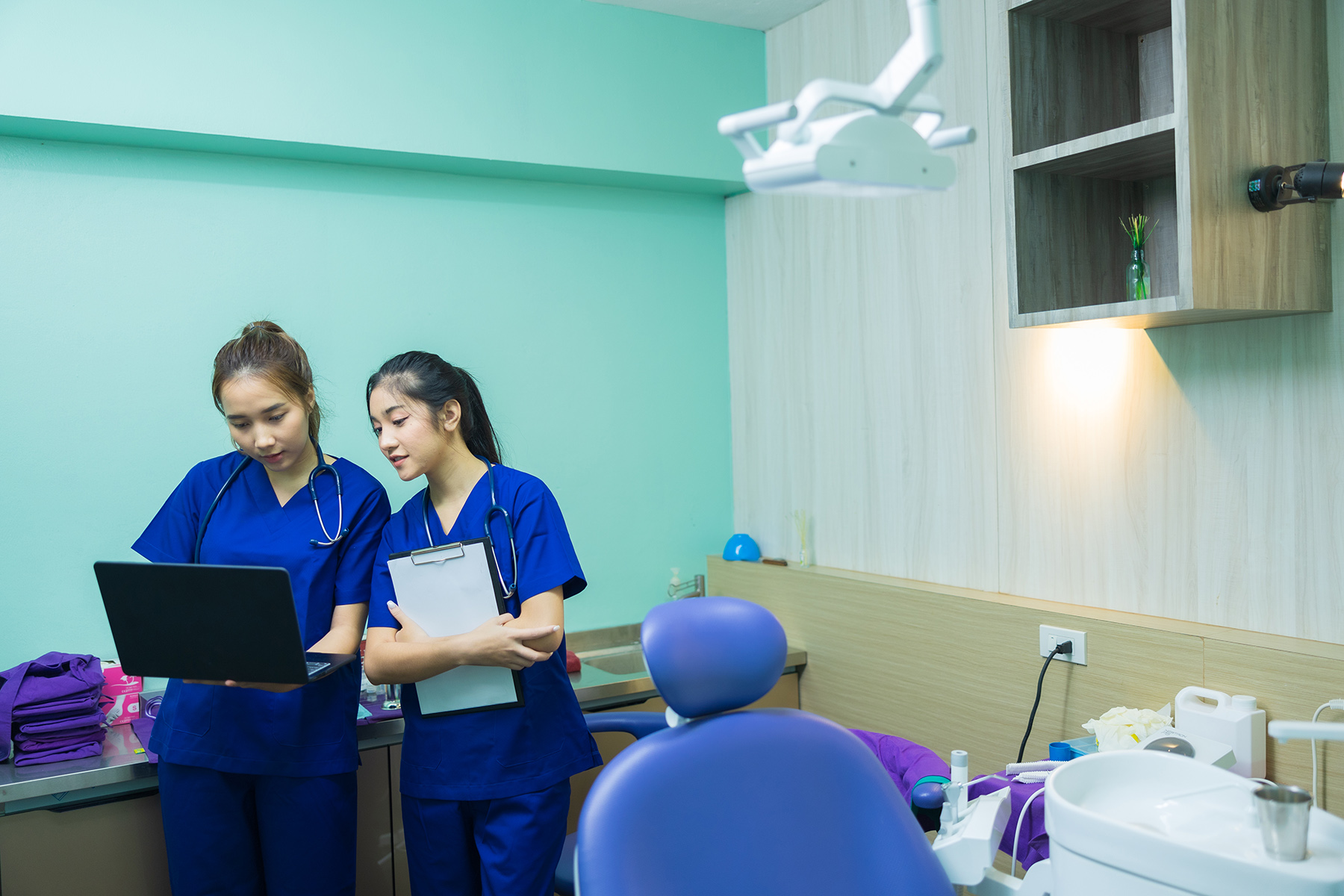
The services offered depend on the specific hospital and the resources available, with some providing more extensive services than others. For example, Mae Wong Hospital in Nakon Sawan stands out through their staff’s expertise and access to free dental implants under the UHC/UCS and the National Health Security Office (NHSO).
Expats who work and live in Thailand and pay social security can claim small amounts for basic dental care and dentures. Conversely, international visitors will need to pay for dentists out of pocket or use their health or travel insurance.
Thai dental healthcare
Thailand boasts a considerable dental workforce with 7.3 thousand dentists, translating to 2.7 practitioners per 10,000 people — surpassing the Southeast Asia average of 1.5 (WHO, 2022). Despite this, only 9% of the Thai population sought dental care in 2011. In response, the Thai government implemented the “One District, One Dentist” initiative to bolster dental services in rural areas.
Dentists in Thailand recommend checkups every six months. However, many Thais only visit dentists when they have a problem, and access to dentists in rural areas is limited.
The Dental Council of Thailand (TDC – ทันตแพทยสภาแห่งประเทศไทย) plays a crucial role in regulating the industry, ensuring adherence to minimum standards. All practicing dentists must hold a six-year dental degree certificate from an accredited institution and be licensed by the TDC. Additionally, the Bureau of Dental Health (สำนักทันตสาธารณสุข) oversees public dental health standards.
To assess access to primary dental care within the Thai healthcare system, the National Health Security Office (NHSO – สำนักงานหลักประกันสุขภาพแห่งชาติ) plays a pivotal role. Free and subsidized dental care is available to Thai nationals and expatriates working in Thailand who have contributed to social security for at least three of the preceding four months.
Health tourism, including dentistry, is a growing industry in Thailand, with an increasing number of English-speaking dentists and private dental clinics available. Most expats access dentists through the private sector.
Thai state dental care
Dentists in Thailand work in public hospitals or clinics where primary dental care is provided through the UHC. State-run dental hospitals and clinics are often fully equipped in cities but are more basic in rural areas. Still, standards of care are high, and costs are low. However, waiting times, services available, and the language barrier can complicate access if you do not speak Thai.
Oral health services include prevention, curative care, and rehabilitation. Residents can access these public health services under three schemes:
| Group | Scheme | Coverage |
| Thai citizens | Universal Coverage Scheme (UCS) | Free/subsidized |
| Thai government workers | Civil Service Medical Benefits Scheme (CSMBS) | Free/subsidized |
| International residents | Social Security Scheme (SSS) | Limited to dentures with annual coverage ceiling for scaling, extraction, surgical removal of impacted teeth and restorations |
Various dental initiatives, such as checkups, treatment, and dental healthcare education for children, teachers, and parents, are delivered via schools, hospitals, and state clinics.
Private dental care in Thailand
Private dentists are popular with expats in Thailand because free public dental care is limited to Thai nationals. Therefore, they pay for dental treatment unless covered by the ฿900 annual social security allowance or a private dental insurance policy.
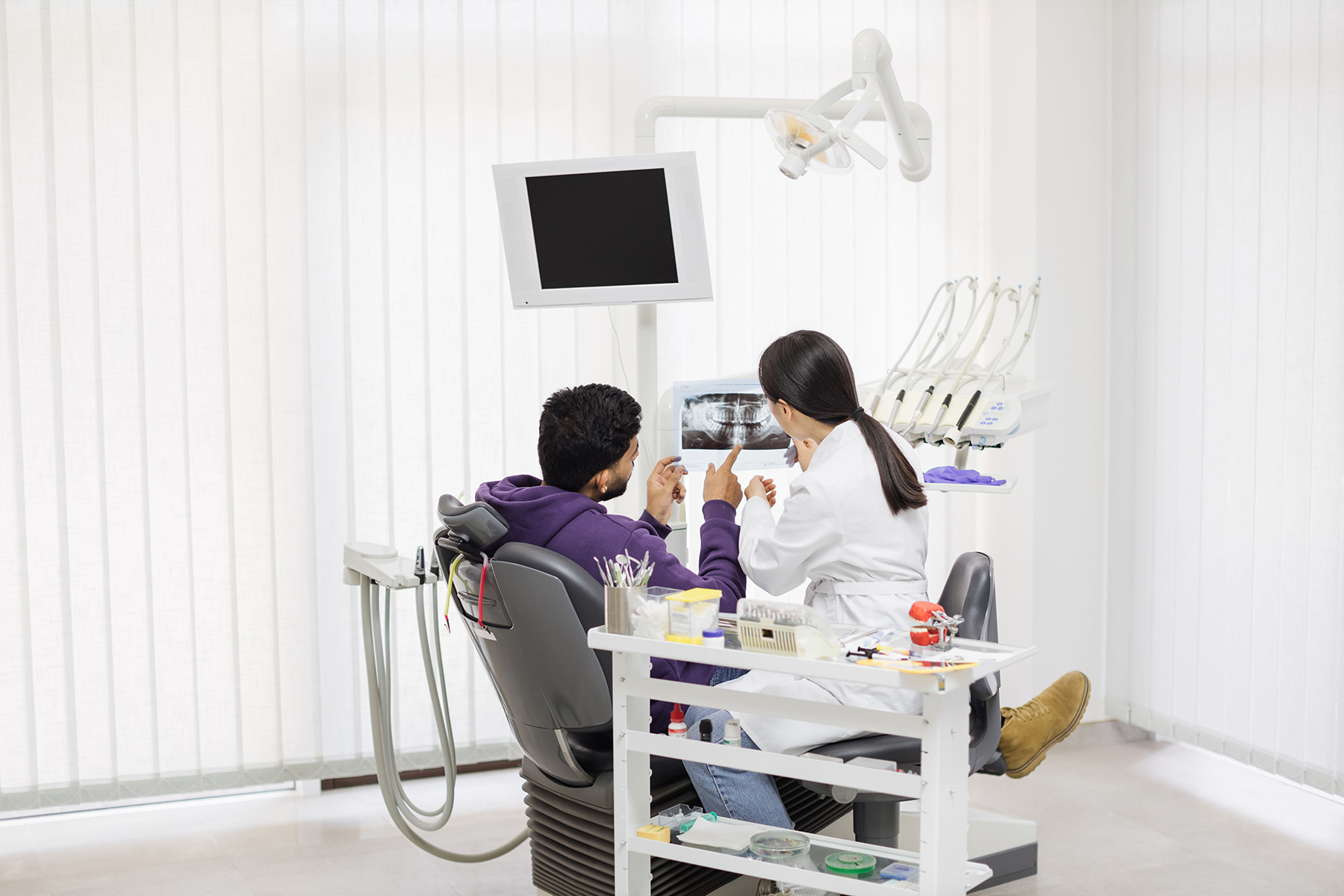
Dentists in large private hospitals and clinics are fully equipped and can provide a full range of dental services from primary dental care to specializations, such as:
- Orthodontics
- Root canals
- Cosmetic procedures
These are not available in the public health sector.
Image: Nadezhda Moryak Pexels
Costs of private dentists
The cost of dental treatments and checkups varies widely depending on the dentist and institution. In general, you can expect to pay in the range of the following rates:
| Treatment | Approximate price |
| Checkup/consultation | ฿500–2,000 |
| Filling | ฿500–1,500 |
| Cleaning | ฿1,000–2,500 |
| Crown | ฿10,000–25,000 |
| Teeth whitening | ฿9,000–20,000 |
| Root canal | ฿12,000–20,000 |
| Dental implant | ฿35,000–100,000 |
| Invisalign braces | ฿80,000–180,000 |
Low-cost dental care in Thailand
Dental care in Thailand is relatively affordable compared with European countries, the United States (US), and the United Kingdom (UK). However, specialist procedures and private dentists can still be pricey.
The cheapest dentistry care is available in government dental hospitals and schools, such as Chulalongkorn Dental Hospital or Mahidol University. Patients usually pay the bill right after treatment, and only the excess if the establishment is a social security partner. However, social security only provides minimal financial assistance, so carrying cash or a credit/debit card is essential to cover the balance.
Children’s dental care in Thailand
Free primary dental care is available to Thai children of all ages. You must provide your child’s Thai ID documents, such as a birth certificate, to the National Health Security Office to verify their identity and nationality to register them for the Universal Healthcare Scheme.
In addition, various oral health promotion programs deliver public dentistry and education to school children via the Thai Public Health Service and institutions like the Chulalongkorn University Faculty.

However, only primary dental care is available, sometimes with long waiting times. Therefore, most parents who can afford it book their children with private dentists for better facilities, a more extensive range of treatments, and prompt appointments.
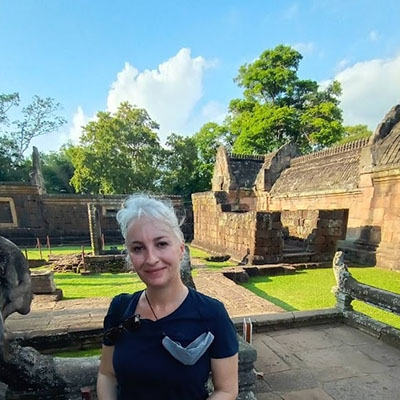
Local writer and expert
Jane Evans
Insider tip
Pediatric orthodontic treatments, especially braces and retainers, can be costly, making them a status symbol in Thailand. For instance, many young women in their twenties and thirties get their teeth straightened for cosmetic reasons like to show off their braces. You can even buy illegal fake ones to get the look cheaply!
Thai emergency dental care
Emergency dental care is available 24 hours daily at some Thai hospitals and clinics, with more access in urban areas like Bangkok or Chiang Mai than in small rural villages. However, if you are an expat and do not have a health insurance policy, the institution will bill you for the full treatment.
Any treatment that requires immediate attention by a dental health professional is categorized as urgent and may include:
- Dental surgery
- Fillings
- Fixing a broken tooth and other treatments
Simple emergency dental procedures can be performed at small dental clinics, while more complicated or specialist treatments may require a fully-equipped facility. If you do not speak Thai, you can also search online for English-speaking dentists and specialists in your area.
Private dental insurance in Thailand
There are two specific categories of dental treatment:
- Routine: Includes checkups, cleaning, simple fillings, extractions, and root canals
- Major/specialized: Includes wisdom teeth extraction, orthodontic procedures, bridges, and gum treatments
Private health insurance packages cover both, but the ones including routine care may be more expensive, as it is also subsidized (partially) by your social security payments. Also, if you need an extensive procedure, first check with your insurance provider to see if they will cover the total cost so you avoid ending up with unexpected bills.
Reputable health insurance providers in Thailand include:
Take the time to research and compare health insurance companies in Thailand to find the dental package best suited to your needs.
How do you access dental care in Thailand?
Anyone living in Thailand can access dental care without registering with a specific dentist first, as long as you have the means to pay for the treatment if not covered by the UHC. Patients can visit a dental clinic or hospital in person and wait or arrange an appointment in advance.
As mentioned previously, Thai citizens can access free public dental care at public hospitals and dentistry clinics via the UHC, while civil servants use the funds provided by the CSMBS.
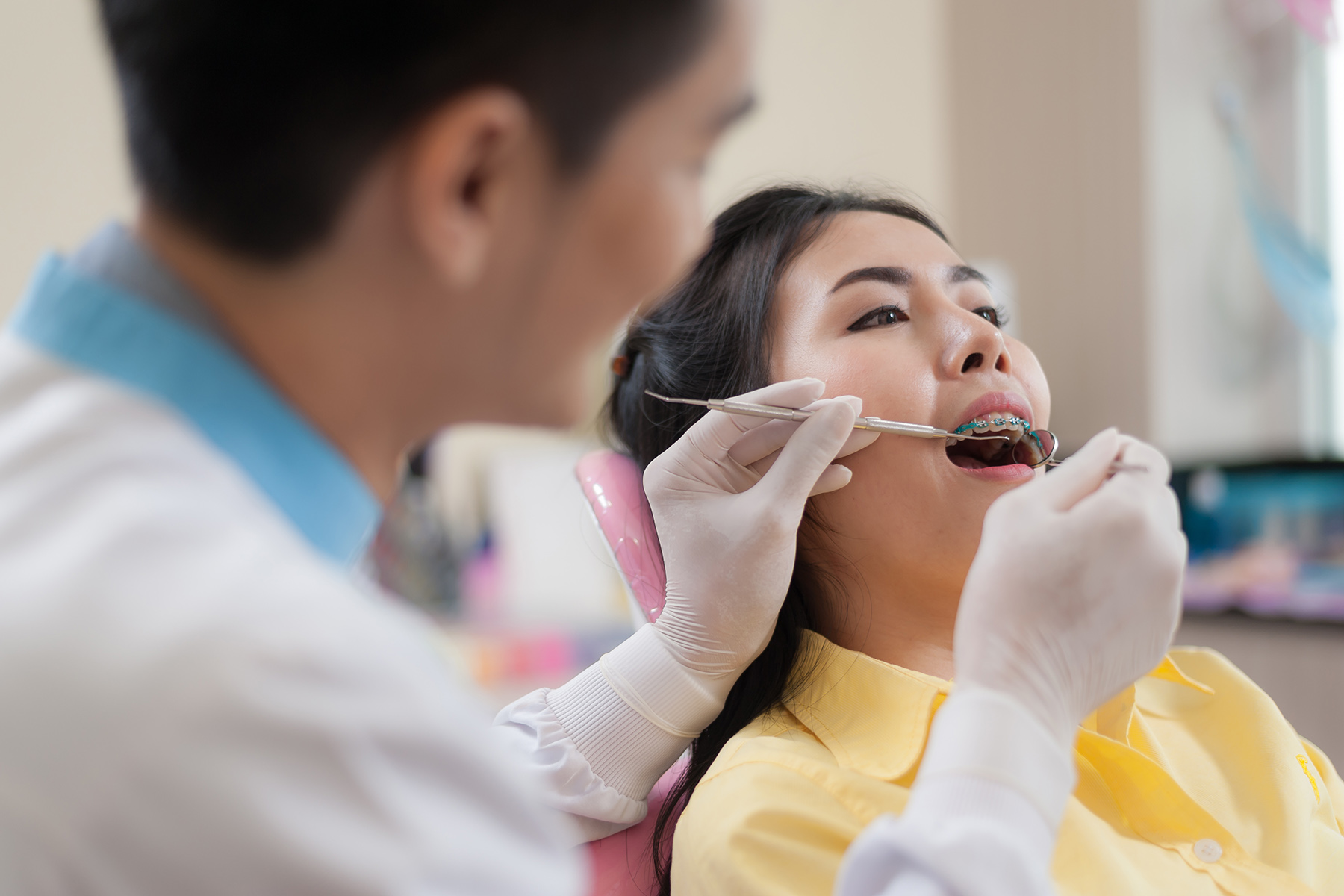
Expats in Thailand with social security can get up to ฿900 per year to help cover primary dental care, such as cleaning, fillings, and checkups. A further ฿1,200 can be claimed for partial dentures and up to ฿4,400 for a full set within five years from installation.
To receive social security assistance with dental costs, you must request a tax invoice for prakan sangkom (ประกันสังคม) from the receptionist. The tax receipt can be used as documentation to recoup part or all of the expense, depending on the cost. Also, you only pay the excess at public hospitals – that partner with the Social Security Office – so it is essential to carry your SSO card and ID when visiting a dentist.
Finding a dentist
Online searches and Google ratings make it easy to find dentists in Thailand. Large, well-equipped private hospitals with dental departments and English-speaking dentists include the following:
- Bangkok Hospital
- Bumrungrad International Hospital
- McCormick Hospital
- MedPark Hospital
- Samitivej Hospital
- Bangkok International Dental Hospital (BIDH)
Other popular private dental facilities and clinics include the following:
- Bangkok Smile Dental Clinic (with two clinics in Phuket)
- Smile Signature Dental Clinic
- Thantakit International Dental Center
- Truth Dental Clinic
English-speaking dentists
It is relatively easy to find English-speaking dentists in Bangkok and places with a high concentration of internationals and tourists like Chiang Mai, Phuket, Pattaya, and Koh Samui. Private hospitals and clinics are likelier to have English-speaking dentists in remote areas.

Local writer and expert
Jane Evans
Insider tip
If a dentist’s website offers clear information in English, it indicates that their practitioners are also fluent. Of course, contacting the dental clinic directly to confirm this is a good idea.
Visiting a dentist in Thailand
Appointment systems for dentists in Thailand depend on each provider. Typically, at hospitals and most public clinics, patients can book an appointment in advance or turn up and wait to see a dentist. Conversely, for specialists and private dentists, you must schedule an initial assessment or routine checkup and book follow-up appointments if you require more extensive work.
It is always essential to bring your ID (e.g., passport) to a dental appointment to confirm your identity and immigration status.
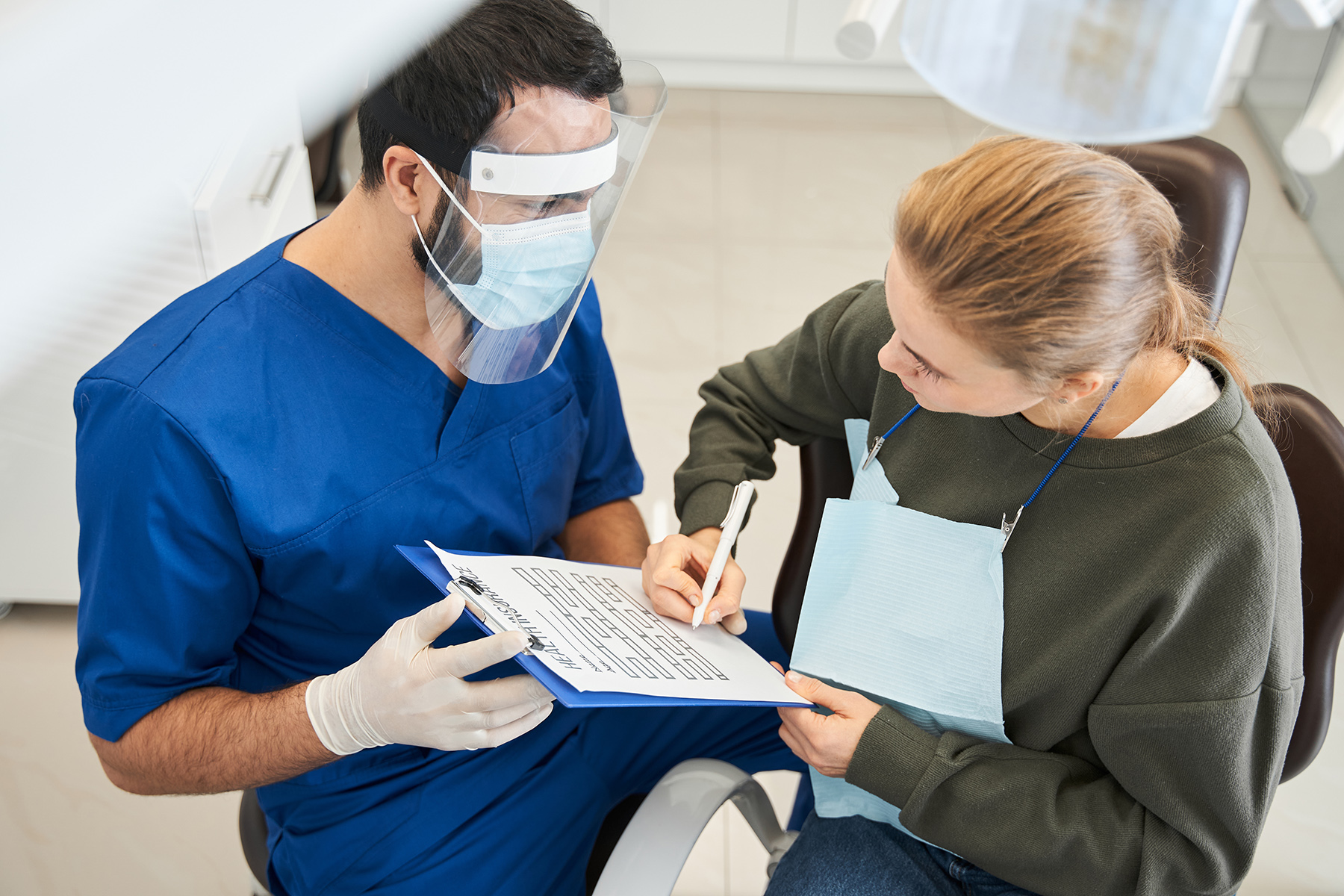
On arrival, you should let the receptionist know your name and the purpose of your visit. You may be asked to write your full name and details so they can be entered into the system. Waiting times vary, with public hospital dental services being the most heavily in demand.
Some dentists will be able to see you on the same day, but you may have to wait a while. If they are busy, they will schedule an appointment for another time. However, not all will honor your appointed slot if other procedures run over on the day.

Local writer and expert
Jane Evans
Insider tip
Most Thai dentists use a face drape during dental work. A face drape covers most of the face, with a circular opening for the mouth and nose, which can feel a bit uncomfortable if you are claustrophobic.
Payments
If you have dental insurance, determine whether you must pay first and claim later.
However, it is worth taking cash or a card with you as you will be expected to pay after the appointment, even if your dental care is covered by health insurance. Remember to request a tax receipt for insurance purposes.
Thai dental clinics and private hospitals usually display a clear price list in reception or on the website. If you are unsure about the cost, you can ask at the clinic or hospital before undergoing treatment.
Useful resources
- The Dental Council of Thailand (TDC) – an organization that accredits dentists; you can find them by searching their name in the database
- National Health Security Office (NHSO) – provides limited financial assistance for dental care if you pay social security contributions
- Bureau of Dental Health (สำนักทันตสาธารณสุข) – responsible for public dental health services
- The Dental Association of Thailand (ทันตแพทยสมาคมแห่งประเทศไทย) – promotes professional practice in the field of dentistry and ongoing career development for their members
